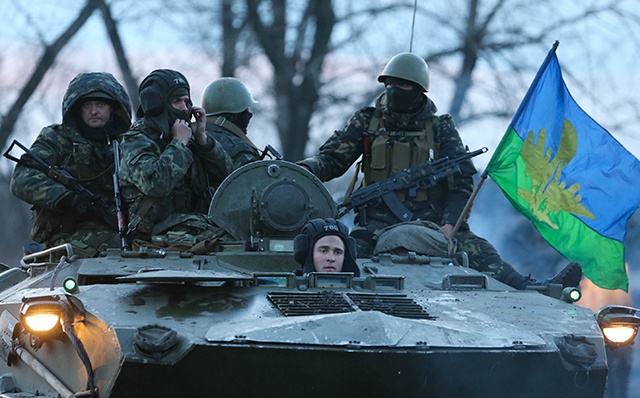Today, the Ukrainian military began “anti-terror” operations to wrest control of some eastern police stations and government buildings from pro-Russian militants who had seized these installations during the previous week. These militants, along with suspected Russian Special Forces, have stirred up unrest in cities in eastern Ukraine, capturing government buildings and demanding additional autonomy and closer relations with Russia. The U.S. can take steps to help mitigate the impact of Russia’s asymmetrical warfare; however, we must also be prepared to respond should Russia opt for a full-scale military invasion against Ukraine. Russia’s ongoing aggression against Ukraine has made one thing very clear: the Russian reset is dead, a fact that Michael McFaul, the author of the Russian reset policy, admitted to in a recent interview. Moving forward, the U.S. must recognize Russia for what it is: a strategic competitor. In order to achieve its goals, Russia is willing to use brute military force, as demonstrated by its invasion of Ukraine and annexation of Crimea, or asymmetrical warfare, such as it is currently employing in the remainder of Ukraine. The U.S. must strongly condemn Russia’s actions in Ukraine, reiterate our commitment to NATO allies in Eastern Europe, and take strong, affirmative steps to raise the costs of any further Russian military incursions into Ukraine. Crimea needs to be a wakeup call for the Obama administration; strategies must be in place to respond swiftly and strongly to any further full-scale invasion of Ukraine. Furthermore, the U.S. must reassure our NATO allies in Europe that the U.S. can be counted on. Even if the crisis in Ukraine dies down, U.S.-Russia relations moving forward must change. As Heritage notes:
Russia’s behavior is a direct violation of Ukraine’s sovereignty and territorial integrity, and a full invasion of the rest of the country should come at a high price for Russia both diplomatically and economically. Regardless of further aggression, the U.S. should change the way it deals with Moscow.
Despite the wishful thinking from the Obama administration, Russia today is not a helpful, honest partner for peace and stability. Indeed, Europe remains important, and U.S. leadership and military strength on the continent remain vital to U.S. national interests. The U.S. must enact strong, strategic policies toward Russia that will hopefully mitigate ongoing Russian actions in eastern Ukraine, and raise the cost of any further military incursion, while securing for our allies in NATO their own territorial integrity and sovereignty against any future Russian hostility.























